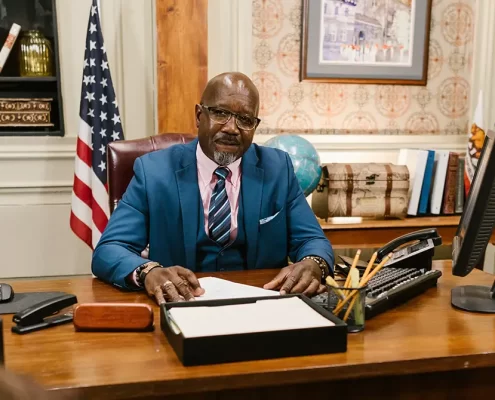
Trusts in Estate Planning and Litigation
Estate Administration, Probate, WillsTrusts are an ancient legal mechanism that protect your assets, and they’ve only become more popular with time. Trusts can be used instead of wills to pass on your assets to the next generation, or as a way to protect money for a family member…

Common Law Marriage in Pennsylvania
Family Law, Willshttps://youtu.be/CDlEpqWrVZ4
Common law marriage is an old rule that originally comes from England. The idea behind it is that a man and woman could be married simply because they represented themselves as a married couple enough times in…

When is the Reading of the Will?
Estate Administration, Probate, WillsThe scene opens in an oak-paneled conference room, as shafts of light descend through the large windows in the lawyer’s office onto the pages of an ancient, creased will. The grumpy lawyer slowly begins with some preamble when he is interrupted…

Am I Responsible for My Parent's Debts?
Estate Administration, WillsWhen a parent dies, the adult children often ask if they are responsible in any way for the debt that is left behind. The quick and easy answer is, no, you are generally not responsible for the debts of your loved one who passed away. There…

Adopting your Stepchildren
Custody, Family Law, WillsThe Brady Bunch was meant to be a humorous show about the difficulties of merging two families with kids. But 50 years after the show debuted, there isn’t really any joke about it. Merged families are the norm, and for parents working to ensure…

What can I do with a short certificate?
Estate Administration, Probate, WillsWhen you obtain a short certificate for an estate, what does it empower you to do? The short certificate is the document granted by the Register of Wills in a county to the Executor of an estate. The Executor, having named and granted these…

The Right of Sepulchre
Estate Administration, Wills, Wrongful DeathWhen a loved one passes away, there can be disputes regarding how to treat and dispose of the body. Ideally, the decedent would have included clear funeral instructions in his or her last will and testament. In some cases, those wishes might…

Reaching Family Settlement Agreements in Estates
Estate Administration, Probate, Property, WillsWhen a family member passes away, many factors can combine to create conflict over how to resolve the estate. Oral promises made by the decedent while alive, or a confusing portion of a will, or an apparent change in circumstances since the…

Drafting a Will: What Should I Include?
Estate Administration, Willshttps://youtu.be/qOIzdBCDhEk
When drafting your last will and testament, there are several important questions you will need to ask. While drafting a will can be a fairly simple process for most people, it still contains a few potentially stressful…

What is a Power of Attorney in Pennsylvania?
Custody, Estate Administration, Probate, WillsPower of Attorney is a document granting one person the ability to make decisions regarding property and possessions on behalf of another. The power of attorney document (POA) is named this because the agent can act in many ways as an attorney…
